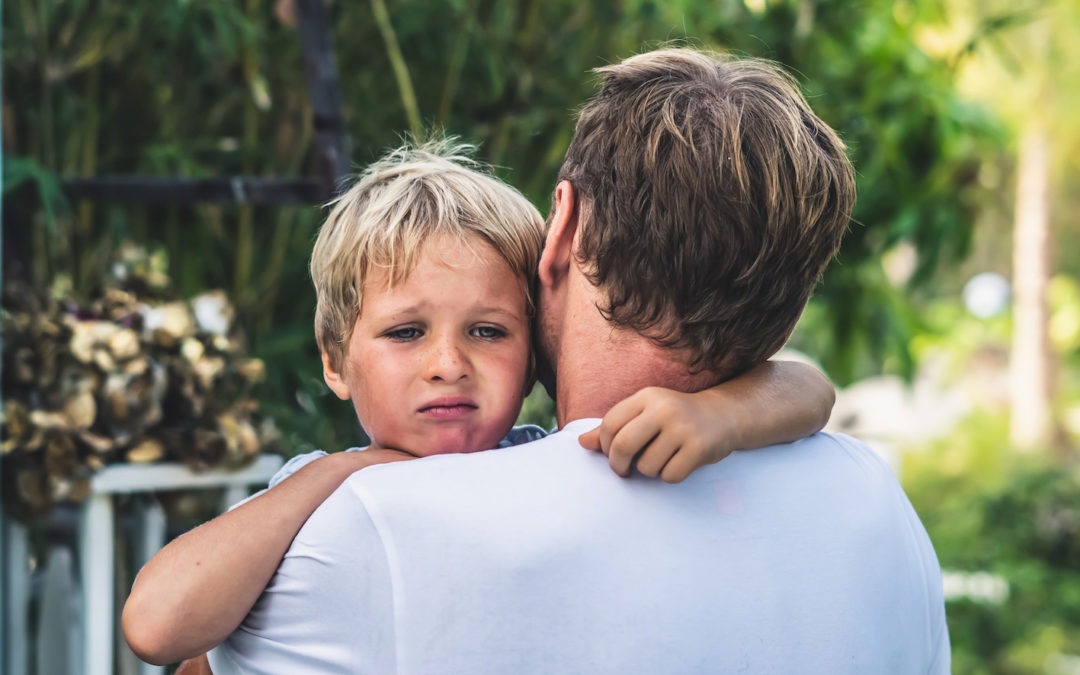I Yelled At My Child… Now What?
So, you yelled at your child. Guess what? You’re not alone. In fact, I’ve never met a parent who hasn’t lost their cool and yelled, at least a few times. The reality is that parents are human, and humans act crazy sometimes. It’s a fact. But, what do we do after it happens? If you haven’t already, check out the prequel to this post Parent Guilt: What To Do When It’s Warranted where I walk you through the first three steps of what to do in the heat of the moment. And if you’ve already read it, then continue on as I dive in deep into the process of step 3: repair.
How to Repair Your Relationship With Your Child After You Yelled
1. Determine that both you and your child are calm
Basically, make sure that you’ve completed steps 1 and 2 from Parent Guilt: What To Do When It’s Warranted. You both need to be able to reconnect with the rational part of your brain that can think things through and have a dialogue. And this just isn’t possible when either one of you is overwhelmed by emotion.
2. Approach your child and invite them to talk
This doesn’t have to be a formal invitation necessarily, but, by thinking of this as an invitation, it reminds you that your child has the ability to decline. Perhaps you misjudged and they are still angry and not ready to move on to the repair stage yet. Or perhaps they are busy doing something else and this just isn’t a good time. This step is all about demonstrating respect for your child. And it sets the tone that they can listen to their own body to determine when they’re ready, not just force themselves to something at someone else’s whim.
3. Offer affection
You can adapt the level of affection to what you’re comfortable with and what you are accustomed to using with your child. But affection is powerful. It has the ability to melt away negative feelings instantaneously when offered genuinely. And can set up your conversation out of a place of love instead of anger or guilt.
4. Apologize
This step is important! Some parents think that apologizing undermines their authority, but remember what I said above about parent/child conflict shaping your child’s experience with conflict going forward. Do you want your child to demonstrate accountability for their actions? Do you want them to communicate this accountability to others? Do you want them to apologize to you for their misbehaviors?
If you answered yes to any of those questions, then you need to start by demonstrating the behavior you want your child to learn. And that means apologizing to your child when you make a mistake. Being able to apologize for your mistakes is indeed a sign of strength, and you want your child to gain that strength.
5. Encourage your child to express his feelings
In order to fully move past this issue, you’ll need to allow your child the opportunity to express how he felt when you did whatever you did. This will help him to release any remaining negative emotions stuffed inside and ensure that this isn’t something that’s going to come boiling over later down the line. So take a deep breath and listen.
6. Validate your child’s emotion
Whatever emotion your child brings up, find a way to communicate that his feeling is understandable. It doesn’t matter if you wouldn’t have felt the same way your child felt. All that matters is your actions made your child have some negative feelings, and now it’s your job to help him feel ok about those emotions.
If you do these steps correctly, you and your child will both walk away feeling lighter and more relaxed. If either of you doesn’t feel that way, something went wrong. Were you both calm when the conversation happened? Was your apology genuine? Did your child express the feelings he had inside? You can always go back and try the repair again.
If you’re new to the process of repair in relationships, this experience may seem uncomfortable initially. However, remember that the price of positive change is just a little bit of discomfort. And the benefits are absolutely worth it. So go ahead and try it with your child. And let us know how it goes!
____
Dana Basu, PsyD is a licensed clinical psychologist at EverGROW therapy and founder of Everything But Crazy, an online resource for parents. She provides individual therapy, support groups, and online resources for parents in Orange County and throughout the state of California via online therapy. She specializes in working with the highly sensitive person and people with difficult childhood experiences, trauma, parenting stress, and chronic guilt.

